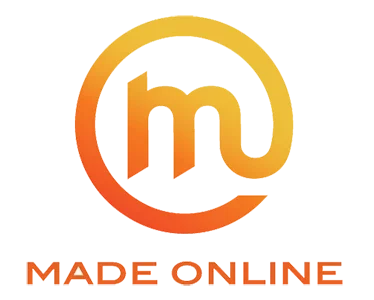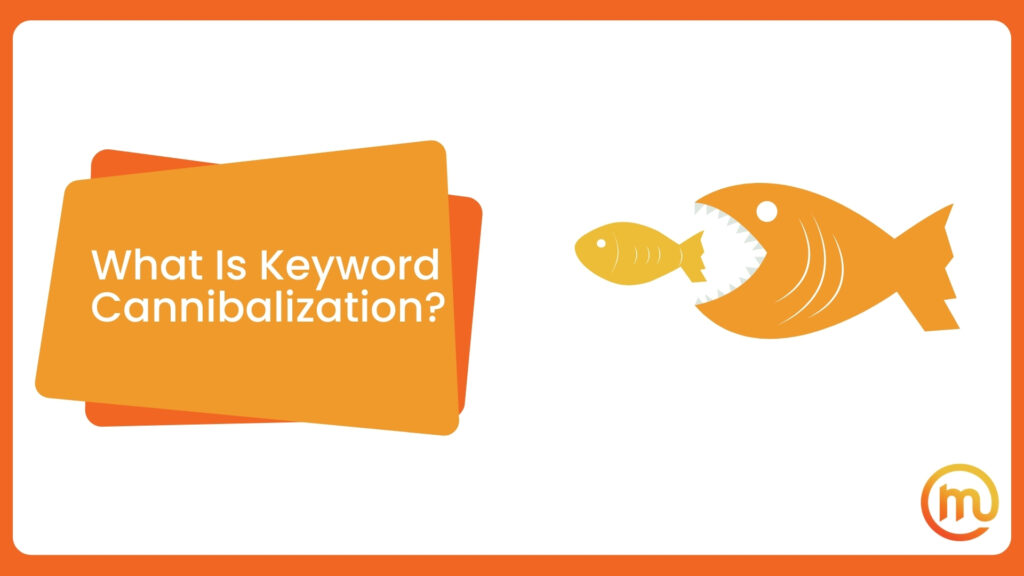What is keyword cannibalization? It sounds dangerous and scary, and in some ways – marketing-wise – it can be. However, this seemingly terrifying concept can be avoided and fixed with the right knowledge. Our experts explain that and the methods for reducing mistakes when optimizing websites.
Before We Start, Let’s See – What Is a Keyword?
Keywords, also known as key phrases, are components of online content that improve its search engine ranking. For example, your business might be selling organic wine, so the key phrase for all your content will be “organic wine” and the word – “wine.”
Other keywords that could increase traffic on websites need to be researched to improve your content, marketability and positioning on Google pages. Most additional phrases and words are found through extensive research, but they’re chosen according to their volumes, commercial intent, and competition.
Why Are Keywords Important?
Every business wants to rank first on Google, and key phrases and words make that possible. Overall, keywords are a part of SEO or search engine optimization. A professional SEO agency that understands how to refine your content according to searchability will also be responsible for increasing traffic to your webpage and business.

How Do Keywords Help SEO Rankings?
Key phrases and words are integral to a site’s searchability. Without knowing them, you wouldn’t know which audience to target and how to market your business. Still, there can be bad marketability, too. Some phrases, despite their highly competitive nature, aren’t always good for business.
“Organic wine” is a pretty generic phrase. Using only these two words to describe all of your content leaves much to be desired; how is it organic? What makes it so? Where can people buy it? Is it truly organic? These questions can be answered through optimization practice without jumping through hoops to reach your target audience.
Search Engine Optimization (SEO) Was Modeled for Google
SEO wasn’t really a thing before Google. This search engine became the default after its appearance, so much so that people use it as a verb when attempting to find something online. “I’ll just google it” is probably the most used phrase in our daily lives.
That’s what you need to consider when attempting search engine optimization. Besides, with today’s competitive results, you don’t want to be on just any of the pages – you want the first page.
Remember an example when you searched for a site beyond the first page of results. You probably can’t – and that’s what optimization is all about.

What Is Keyword Cannibalization and How Is It Bad?
Keywords make it possible for a business to rank in its industry. Basing your business pages and blogs around them will make you more reachable. However, you also need to know when and where to place certain phrases; piling them on doesn’t always help.
It is possible to have an oversaturation of key phrases on your website. That’s essentially what keyword cannibalization means, and it’s bad for business. As mentioned above, “organic wine” is a pretty competitive phrase.
Using it in a similar context across different blogs might make folks confused about what to read and where to go. The confusion will likely lead them to another site and leave you with one less potential customer.
It’s Overall Bad for Marketing
Some businesses don’t understand keyphrase cannibalism, so they try to jam essential words and phrases into their websites. That practice seems right for them, despite what an SEO agency might advise.
As a result, modern algorithms that filter out pages notice this and get confused. If a confused algorithm sounds bad, it is. It’s bad for marketing, bad for optimization, and ultimately, bad for business.
Do You Need 5 of the Same Articles?
Which page about organic wine do you want to rank higher? The wrong one can often pop up in front of others, making it difficult to revert. Although reverting seems like a bad idea, your site needs to be reoptimized by an SEO marketing agency. That’s the only way to rank and get views that make sense.
It’s OK to tell a digital content agency your demands. It’s your business, after all. But, as you have requests, they’ll have suggestions based on them. That might sometimes entail removing repeated texts and refining websites to be less busy and more ranking-worthy. You’ll see how, with good research and optimization, businesses can reach Google page number one.

Steps for Recognizing Keyphrase Cannibalism
Before you learn how to avoid keyphrase cannibalism, you need to know if you’ve already done it. The steps to finding out if your website is oversaturated with phrases are relatively straightforward. They include:
- Enter into your preferred search engine “domain + keywords”; according to the example, that would be “OrganicWine.com + keyword”
- Depending on what cannibalization examples you want to check, that will be the phrase you enter after the plus sign; if you want to check phrase cannibalism for organic wine shops, just enter “OrganicWine.com + organic wine shops”
- This will help you see all the related results, appearing according to rankings.
If you notice a blog from years ago ranking higher than a recent link, that means your key phrases have been cannibalized. More recent content is always more relevant; optimization experts often refer to old blogs and replace old internal links with new ones.
More recent results also mean you’re actively working on your business; if someone searches your website and notices the number one ranking blog is from two or three years ago, they’ll likely skip and look for more recent information.
Use this opportunity to refresh your content pages and give the audiences a blog they wish to see. And if you don’t want to do this alone, well, plenty of SEO marketing services are offered by companies (such as Get Made).

How to Fix and Avoid Keyphrase Cannibalism
If you’ve noticed keyphrase cannibalism on your domain, fear not. This is fixable, as most issues are. However, a lot depends on how deep that rabbit hole goes. A professional agency can’t promise optimization within a day if you’ve spent years piling all your content onto a single phrase or word. Here are four solutions for anyone dealing with keyphrase cannibalism.
Content Merging or Deletion Is One Way
One of the easiest ways to relieve your site from clogged content is by merging or deleting it. Sometimes, getting rid of similar blogs and pages can be the fastest way to make your site come back to life.
If you have irrelevant old content bogging down something new and more relevant, of course, the first thing you’ll consider is removing the problem. There will be times when it won’t be that simple, but when it is, taking the opportunity is highly recommended.
Growing is natural, and it’s important to recognize how your business has grown since you first started. Chances are, you’re now more professional and skilled in what you do; that’s why you want content that reflects that improvement.
Removing the Keyword Is an Option
Word and phrase removal is a more manual process than automatic, which is why it can take longer than simply clicking “delete.” If there’s some relevant information in your old content that you’d prefer to keep (or you simply like it,) removing key phrases and words is also a thing.
Just because this is a manual process doesn’t mean it’s more complicated. It’s pretty straightforward – find pages with the overused keyphrase and reduce it. However, if you have a ton of content, this process could take much longer than anticipated.
Manual phrase elimination can often be entrusted to larger teams to speed up the process, but that’s what could make it a bit more expensive in the long run.
Request a Change In Inbound Link Patterns
There’s an important part of optimization called “backlinking.” This is when a different website uses yours as an external link of reference. If, for example, an amateur chef with a food blog does organic wine reviews, they may use your blogs to backlink to them.
If this amateur chef used a link you no longer deem relevant, you can reach out to them and ask that they remove or replace it with something new and more interesting. But if you think this person can say no to you, you’re right.
The easiest way might be to just ask them to delete the link, point blank. But that won’t lead to your content anymore, and you’ll lose a backlink. That’s why optimization experts often rewrite content on old domains. The page is fresh, and there’s still a backlink to your business out there.
Take Care of the Internal Link System
Google ranks pages and articles that are often linked in different blog posts, so if you have internally linked blogs yourself, you can switch it up a bit. You might take an older page that doesn’t rank well, and add internal links to the new and more relevant content into it.
That’s a cool way to see traffic improvement on your new pages without having to make massive alterations to what’s already there. When the more relevant content is highlighted through linking, the search engine results page (SERP) gets a green light to prioritize it.
How to Know Which Fixes to Implement?
To learn which fixing method will provide the best results, you must be aware of your site. If you wrote all of your content without considering optimization, there may be a pile of blogs that don’t add up.
A thorough analysis of your business website needs to be done to determine the most suitable type of fix. Of course, you don’t have to spend your time on a full optimization course to improve your searchability. Hiring an organic SEO agency to do the work for you will likely cost you a lot less.
Most agencies that specialize in digital marketing have optimization experts, content writers, and social media specialists who can analyze websites from scratch, understand the necessary fixes, and implement them. Get Made is one of those agencies.
You won’t know which fix to apply if you’re not familiar with any of the searchability requirements. When you hire Get Made, you’ll get the best fixes, optimized blogs and articles, and climb the social media ranking ladder.
Contact us today and don’t let your content sit idly any longer.

Conclusion – SEO Keyword Cannibalization Is Avoidable
Keyphrase cannibalization is a real thing and a really bad one at that. Getting swamped by your content is a form of self-sabotage when it comes to running a successful business; don’t let your past mistakes haunt you and cramp your style.
The best thing to do, besides learning the basics of search engine optimization, is to hire an agency to help you reach the stars. Let them do some digital spring cleaning on your website and see how well your content and products can thrive.

